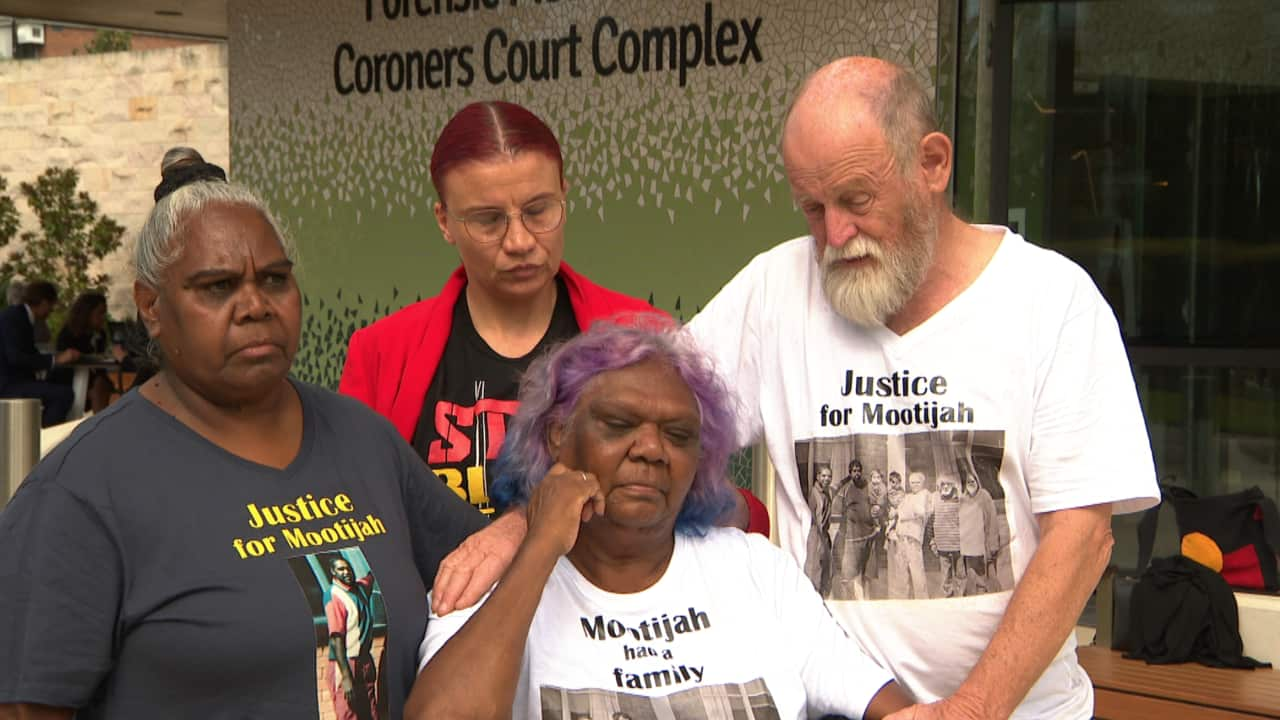In January 2018, 44-year-old Budjiti and Murrawarri man Mootijah Shillingsworth was being held at Silverwater's Metropolitan Remand & Reception Centre when he contracted an ear infection.
He was taken to Westmead Hospital in Sydney’s west on January 18 by corrective services, but died a month later.
In court on Monday, Mr Shillingsworth’s cousin Ruby Dykes said her family was "devastated" that he could die from something as simple as an ear infection while in custody.
“Although there will be no justice, we sincerely hope that his death in custody will bring about change,” said Ms Dykes.
“We are searching our souls for why and how a simple ear infection could take Mootijah away from us." Ms Dykes said it was “heartbreaking” that her cousin's condition had been left untreated, leading to an abscess on his brain, and ultimately his death.
Ms Dykes said it was “heartbreaking” that her cousin's condition had been left untreated, leading to an abscess on his brain, and ultimately his death.

Mootijah Shillingsworth (far left), standing with family. Source: Supplied
“Otitis media is a common health issue in many Aboriginal communities across this vast continent,” she said.
The infection can be treated with antibiotic medication, antibiotic ear drops and pain relief tablets.
The family have called for a more tailored approach to First Nations healthcare in the carceral system.
“We hope to see more cultural awareness about Aboriginal cultural issues that are in the prisons.
“And we also hope to see more Aboriginal support workers in the prisons. (We don’t want) anymore families to go through this.”
In Australia, complications from otitis media are fairly rare for non-Indigenous people, compared to Indigenous people.
Due to reduced access to medical care, lower socioeconomic status and remote living conditions, the levels of otitis media in Indigenous communities are likely to be underestimated.
If left untreated, the condition can result in hearing loss, significantly contributing to poor educational outcomes for children who cannot hear their teachers, and higher unemployment rates in adults.
'Unconscious bias' in healthcare

Dr Kelvin Kong is a Worimi man and surgeon at John Hunter Hospital. He has dedicated his career to the early intervention of Otitis Media. Source: SBS
Mr Kong said because of the blanket approach to healthcare in the justice system, Indigenous and non-Indigenous inmates were being treated by medical practitioners with an "unconscious bias".
In doing so, he said it put Indigenous inmates at-risk because of the complex health issues they more commonly suffered from.
“This is not an Aboriginal problem, this is a non-Indigenous problem in the way that we’re [medically] treated,” said Professor Kong.
"I think the way people [medically] treat people is very different.
"It's not for me [as an Indigenous person] to deal with your unconscious bias, but how do you actually understand your bias.
"Understand your bias and appreciate that so you can work in a different manner.”
Outside court, Professor Kong further reiterated that the current system did not provide adequate healthcare to Indigenous people.
“We need better systems and structures in place to care for our mob," he said.
"I think a lot of the systems we have in place don't put us in the priority level and I think that needs to be highlighted because it doesn't matter who the individual is, it's more about how the structures are.
“If we're serious about this, we need to make some radical changes in the health justice system, to really make sure we have a real impact on change."
Since the 1991 Royal commission into Aboriginal Deaths in Custody, there have been more than 500 deaths in custody.










